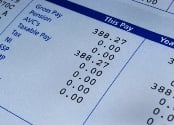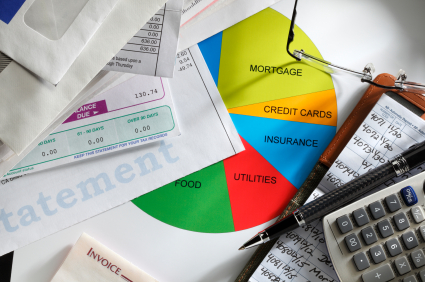Menu
UK Tax Saving Tips - iCalculator
These days, there are not many people who can afford to let the pennies look after themselves. With the prices of houses, oil, fuel, food all on the rise it is upto you, the individual to ensure that you are getting every penny you are entitled to.
The UK economy is a tough place at the moment, so what can you do to increase your household net income? Ensuring you pay the right level of Tax is a key strategy. It's time to knuckle down and address those tax issues that you have long avoided because you either don't understand them, don't think that tax affects you that much or have dismissed because you don't think you can pay less tax.
In the modern world where we use comparison sites for everything from house insurance to restaurants, it is amazing that people still don't take the time to review their earnings and the amount of tax they are paying on their earnings.
In this article we will look at a number of options that you should review to avoid paying too much tax. The guide is designed to provide you with insight into means of paying less tax and increasing your household net income. If you have any tax saving or money saving tips you would like to share, please contact us or leave a message on our facebook page. including:
- Tax Saving tips - Pay less Tax and save £££'s on your tax bill
- Check your Tax Code | How do I check my Tax Code? | What does a Tax Code look like? How do I correct my Tax Code?
- Use your Spare room - New income and Tax Savings!
- Use your partners tax free allowance
- Parents - Invest in your children
- Pay into a Pension Scheme
- Income tax tips - solid tax advice for the self employed, contractors, employees, employers and pensioners
Top 10 Tax Saving tips - Pay less Tax and save £££'s on your tax bill
1. CHECK YOUR TAX CODE!

Is your Tax Code correct? In 2009, HM Revenue & Customs (HMRC) introduced a new computer system which combined information on National Insurance Contributions (NICs) and PAYE.
The system was designed to simplify tax allocation and banding and ensure consistency and accuracy of NICs and PAYE payments and collection.
There have been a number of tax code errors since implementation with surveys suggesting that as many as 1 in 4 people are on the wrong tax code with two thirds paying too much tax (thousands too much tax!).
Having the wrong tax code will mean that you re either paying too much tax or not enough. If you are not paying enough tax, this will eventually catch up with you so its in your best interests to check your tax code every year.
How Do I check my Tax Code?
You will find your tax code on:
- Your wage slip
- Your P45
- The PAYE Coding Notice sent by HMRC
You can also ask your employer to confirm your Tax code or talk to your local tax office.
What does a Tax Code look like?
Your tax code is a number followed by a letter. The Letter indicates your demographic tax category and applies adjustment to the personal tax allowance figure, depending on your eligibility, see the table below.
The number indicates your Personal Tax Allowance for the year divided by ten. You can calculate the total amount of income you can earn in a year (i.e. within your annual Personal Tax Allowance) before paying tax by multiplying the number by ten.
Tax Code Example 810L = 810 X 10 = Personal Tax Allowance of £8,100.00. L = You get the basic personal tax allowance
| Letter | Meaning |
|---|---|
| L | You get the basic personal allowance |
| P | You are 65 to 74 and get the full personal allowance |
| Y | You are 75 or over and get the full personal allowance |
| V | You are 65 to 74, eligible for the full personal allowance and the married couple's allowance and just pay basic rate tax |
| K | You get no tax-free pay or owe money to HMRC |
| T | HMRC needs further information, so cannot allocate another code |
| BR | You are taxed at the basic rate |
| DO | You are taxed at the higher rate of tax |
| NT | No tax is to be taken from your income or pension |
How do I correct my Tax Code
Contact your local tax office and explain that you believe your tax code is wrong. The HMRC staff should then discuss where you think the error may be, take your financial details, review and then write to you to either confirm your tax code is correct or has been changed.
If you are not satisfied with any aspect of the review or procedure, you can escalate a grievance with HMRC in accordance with their charter.
2. Use your Spare room - New income and Tax Savings!
Rent a room relief is designed to release some of the pressure on the housing market. It is an optional scheme that lets you receive a tax free earning (currently £4,250.00 per year) in rent each year from a lodger. To qualify for rent a room relief you must rent out a furnished residential accommodation in your own home. The relief doesn't apply to rooms let as an office or for other business purposes.
3. Use your partners Tax Free Allowance
If you partner has tax free personal allowances which they are not using, transfer some of your assets to them or, if you run your own limited company, employ them. Joint tax / partners / married couples tax allowance is on the governments agenda but at the moment you will have to micro manage your finances in order to make the most of each of your personal allowances.
4. Invest in your children
Did you know that children have a tax free personal allowance, the same as adults? This means that children, like adults, need to earn above a certain amount each year before they start paying tax.
Most children obviously don't have an income so it is essential that you complete a HMRC form R85 which will let the revenue know the Childs earning and stop tax at source.
R85 forms are available from from your bank or building society. Alternatively, an electric copy of R85 can be downloaded from HMRC's website.
5. Pay less Tax - Pay into a Pension Scheme
Contributions to your employers pension scheme can be made from your gross pay, before any tax is charged. You should also check to see if your employer operates a salary sacrifice scheme for pensions which may result in reductions in your national insurance contributions. Read more about Salary Sacrifice here.
Top 10 Income tax tips - Self Employed, Contractors, Employees & Employers
1. Self Employed? Are you claiming all your expenses?
Ask any accountant and they will tell you that most small businesses do claim enough of their expenses back. Most new start up limited companies fail to understand what they are entitled to claim for and don't claim through fear of repercussion.
As a Limited Company, you need to get yourself a good accounting and payroll accountant / company and ensure that you are fully aware of all your claimable expenses.
The following are some of the expenses that you can claim for as a limited company / self employed:
Salaries and benefits
- Employees wages and redundancy payments
- Employers National Insurance
- Insurance and pension benefits for employees
- Employee childcare provision
- The cost of training employees

Dedicated business premises
- Heating
- Lighting
- Cleaning
- Water rates
- Rent
- Business rates
- General maintenance

Work from home expenses
A proportion of the costs in direct comparison to the space utilised for your business (i.e. 20% of you house used 40% of the time for business use would justify 8% of the cost [40% of 20% = 8%]). There are limits to what you can claim (see your accountant) but the legitimate expenses include:
- Lighting
- Heating
- Cleaning
- Insurance
- Mortgage interest
- Council tax
- Water rates
- General maintenance

2. Self Employed | Landlord Tax Savings Tips
Annual Investment Allowance (AIA) - As a Landlord in business (as with any other business) you can claim tax allowances, also known as capital allowances. These tax allowances are applicable to certain purchases or investments that you make on business assets.
You cannot directly deduct your expenditure on those assets when calculating your profits or losses but you can deduct a capital allowance whether you're self-employed and pay Income Tax or are a company or organisation that's liable for Corporation Tax.
Many common business assets such as office equipment, furniture and machines or tools, are considered to be plant and machinery for capital allowance purposes, and expenditure on them could qualify for plant and machinery allowances.
Ensure you claim for capital expenditure on items such as tools and computers. Did you know that as of January 2013, you can claim relief on up to £250,000.00 a year!
3. Self Employed | Make a loss last year?
That's not great news, but did you know you can carry that loss forward as a tax deductable amount for this Tax year? This allows you to reduce the amount of Tax paid in this financial year as you are effectively repaying outstanding debt. Consult your accountant for more information.
4. Landlords, its time to go Green!
When you rent out property you become eligible to claim special tax allowance for insulation, draught proofing and/or installation of a hot water system. This tax free allowance is currently £1,500.00
5. Landlords | Tax relief on your mortgage
Did you know that if you use a mortgage to buy a rental property, the mortgage you take against the rental property is subject to tax relief on the interest. This includes rental properties in the UK and abroad.
Calculate your current tax payments
You can review how much tax and national insurance you are currently paying using our comprehensive salary calculator for the 2024/25 tax year
Next: 2024 Employer P60 Checklist
Previous: 2024 P60 Healthcheck